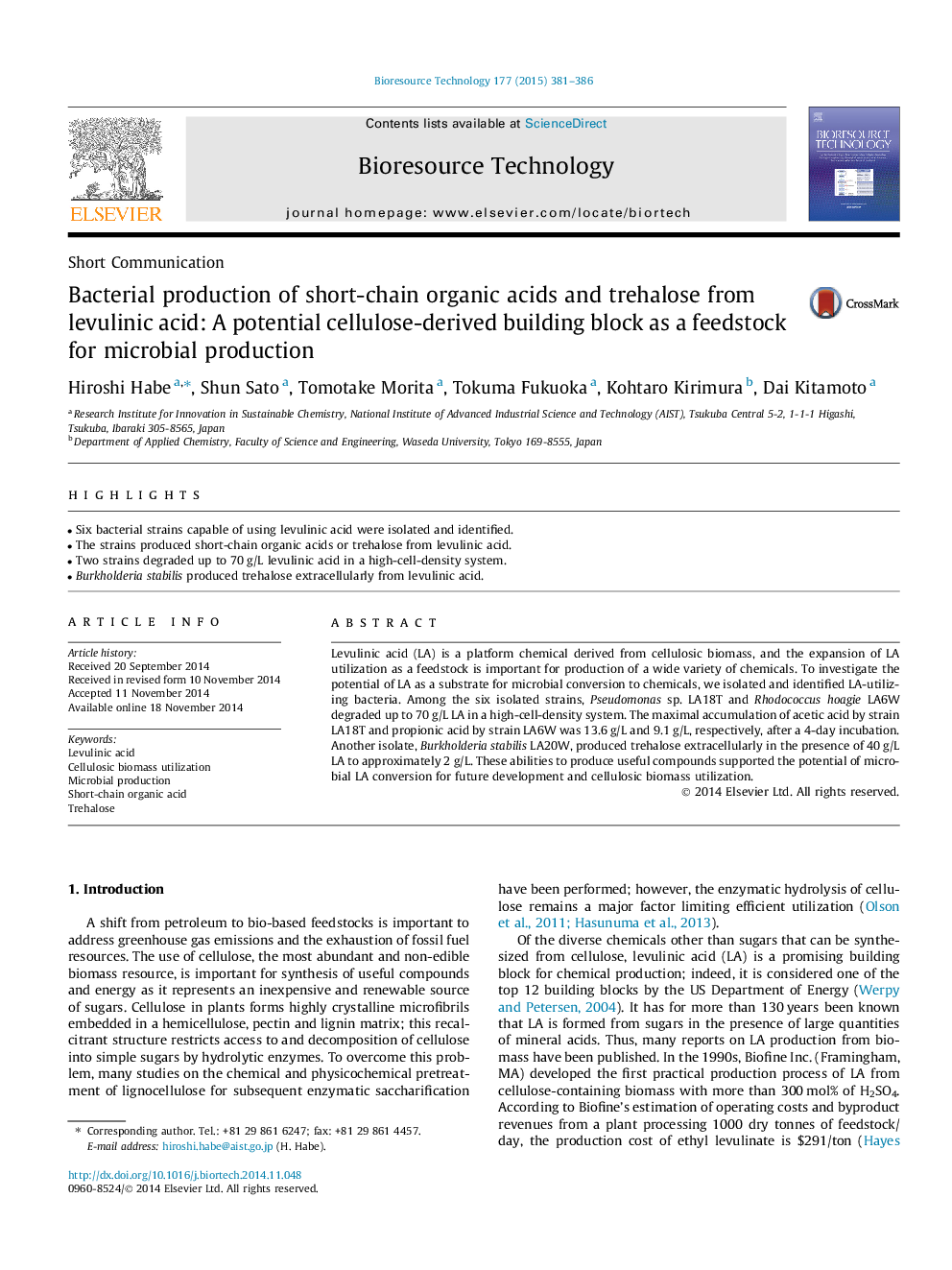| Article ID | Journal | Published Year | Pages | File Type |
|---|---|---|---|---|
| 680248 | Bioresource Technology | 2015 | 6 Pages |
•Six bacterial strains capable of using levulinic acid were isolated and identified.•The strains produced short-chain organic acids or trehalose from levulinic acid.•Two strains degraded up to 70 g/L levulinic acid in a high-cell-density system.•Burkholderia stabilis produced trehalose extracellularly from levulinic acid.
Levulinic acid (LA) is a platform chemical derived from cellulosic biomass, and the expansion of LA utilization as a feedstock is important for production of a wide variety of chemicals. To investigate the potential of LA as a substrate for microbial conversion to chemicals, we isolated and identified LA-utilizing bacteria. Among the six isolated strains, Pseudomonas sp. LA18T and Rhodococcus hoagie LA6W degraded up to 70 g/L LA in a high-cell-density system. The maximal accumulation of acetic acid by strain LA18T and propionic acid by strain LA6W was 13.6 g/L and 9.1 g/L, respectively, after a 4-day incubation. Another isolate, Burkholderia stabilis LA20W, produced trehalose extracellularly in the presence of 40 g/L LA to approximately 2 g/L. These abilities to produce useful compounds supported the potential of microbial LA conversion for future development and cellulosic biomass utilization.
